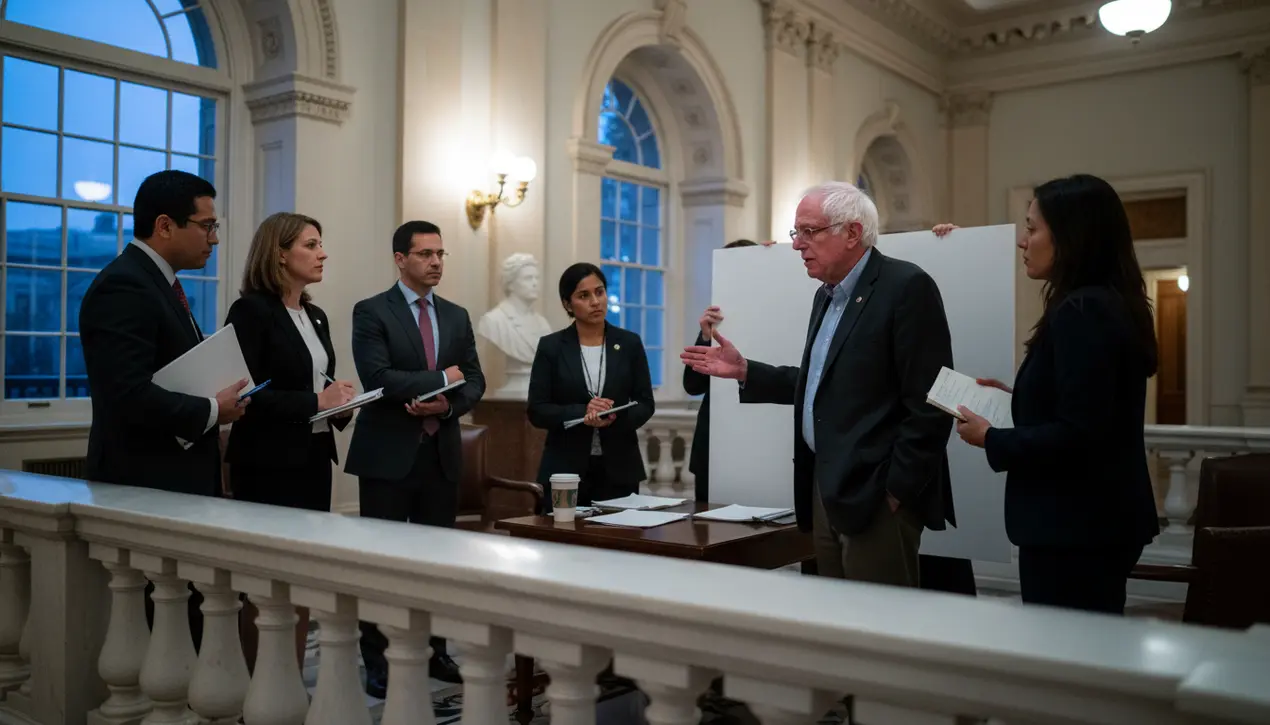
PoliticslegislationHealthcare Policies
Sanders pushes Senate Dems to go big on health care deal
RO
Robert Hayes
3 hours ago7 min read2 comments
Senator Bernie Sanders, the independent from Vermont, is mounting a significant political offensive within his own party, urging Senate Democrats to reject incrementalism and champion an expansive health care package during negotiations with Republicans over extending Affordable Care Act tax credits. This strategic push comes at a critical juncture, as GOP leaders, having just concluded a debilitating government shutdown, have promised a vote on the expiring subsidies next month.Sanders, leveraging his position as the ranking Democrat on the powerful Senate Health, Education, Labor and Pensions (HELP) Committee, articulated his vision in a late Monday letter to colleagues, framing the moment as a historic opportunity to address systemic failures rather than merely applying a temporary bandage. His proposal is characteristically sweeping: it demands not only a straightforward extension of the ACA tax credits but also the repeal of what he terms '$1 trillion in GOP health care cuts,' a substantial expansion of Medicare, and aggressive measures to lower prescription drug prices.This stands in stark contrast to the Republican position, which has been unequivocal in its demand for any extension to be short-term and paired with structural reforms, setting the stage for a classic ideological clash over the role of government in health care. The stakes are profoundly tangible; a new analysis warns that failure to act will cause premiums to more than double for millions of Americans next year, a scenario that Democratic leaders believe has been amplified as a top-tier political issue by the recent government dysfunction.Sanders, in his communiqué, did not shy away from his ultimate ambition, referencing the nation's health system as 'the most expensive in the world' and one repeatedly ranked among the worst by international studies, though he pragmatically conceded that his signature Medicare for All proposal still lacks majority support within the Democratic caucus. Instead, he is advocating for a suite of 'much-needed reforms' that he believes can unite his party, including investments to expand primary care, a ban on stock buybacks and dividends, and a substantial reduction in CEO compensation within the health care industry—measures clearly designed to appeal to the party's progressive wing while testing the limits of bipartisan negotiation.A spokesperson for Senate Minority Leader Chuck Schumer indicated that the final Democratic proposal would be a 'caucus product,' suggesting a period of intense internal deliberation lies ahead. From a historical perspective, this maneuver echoes past legislative battles where a weakened presidency or a divided Congress has empowered individual senators to shape policy from committee positions, much as Senator Ted Kennedy did in previous health care debates. The coming weeks will reveal whether Sanders can successfully marshal his colleagues behind a bold counter-offer or if the political realities of a narrowly divided Senate will force a more modest, stopgap compromise, leaving the larger structural debates over American health care for another day.
#Bernie Sanders
#Senate Democrats
#Affordable Care Act
#health care deal
#government shutdown
#Medicare expansion
#prescription drug prices
#featured
Stay Informed. Act Smarter.
Get weekly highlights, major headlines, and expert insights — then put your knowledge to work in our live prediction markets.
Related News
Comments
Loading comments...
© 2025 Outpoll Service LTD. All rights reserved.